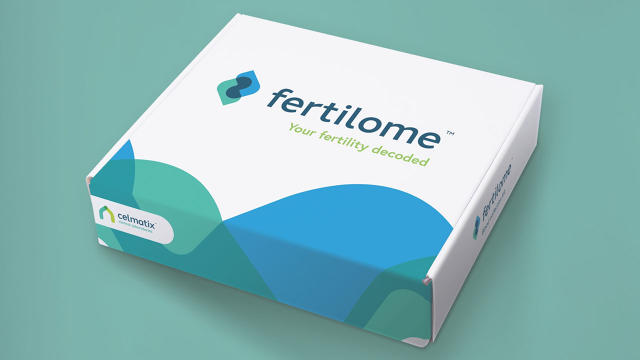Piraye Yurttas Beim was diagnosed in her early thirties with diminished ovarian reserve, a condition that can compromise fertility. That prompted Beim, a molecular biologist, to dedicate her career to helping millions of women with reproductive conditions who struggle to conceive.
Now after eight years of research, her company, Celmatix, is unveiling its first genetic test, “Fertilome,” which provides insights into how a woman’s DNA might impact her reproductive health. It’s particularly useful for women who have a family history of reproductive issues as well as those who are considering starting a family in their thirties or forties and are weighing freezing their eggs. “This [test] has been the holy grail for us,” says Beim.

The timing is right for this kind of test, explains Beim, as recent clinical findings have uncovered a set of variants across dozens of genes that are associated with fertility difficulties for women. These include endometriosis, polycystic ovarian syndrome, and primary ovarian insufficiency, which can be a precursor to early menopause.
Celmatix is hoping to make quick work of reaching doctors and patients as it’s already well established in the fertility space. Its first product, Polaris, spread quickly to more than a dozen leading fertility clinics in the United States. Polaris is used by specialists to compare a patient’s profile to hundreds of thousands of others to calculate likely outcomes, based on comparable patients.
Genetic testing for cancer is increasingly common, as the body of scientific literature is extensive. But reproductive medicine “gets very few dollars for research,” says Beim. To change that, Celmatix has opened two CLIA-certified labs, one in New Jersey and one Brooklyn, to conduct research into fertility. So far, says Beim, New York City-based Celmatix has presented its research findings at 35 medical conferences. In 2016, it submitted data for its laboratory-developed test to the New York State Department of Health for regulatory approval. At the time, some physicians in New York State were able to request early use of Fertilome. During this period, 130 patients received the test, which allowed Celmatix to understand how physicians are communicating with their patients about genetics.
Fertilome isn’t the only genetic test on the market for would-be parents: Companies like Counsyl and 23andMe screen users to determine if they’re a carrier for disorders like cystic fibrosis, and should consider in vitro fertilization. But Beim describes it as the world’s first comprehensive screen for fertility.
Patients can ask for the Fertilome test at their physician’s office. The results are designed to be actionable, meaning they help guide patients to take positive steps. Some women might decide to freeze their eggs, seek guidance from a fertility specialist, initiate fertility treatment sooner, or adopt lifestyle changes that might mitigate risk.

In the future, Beim hopes that a test like Fertilome will be routine for women, and help them make data-driven decisions about their reproductive health. “My prediction is that the way we talk about and treat reproductive conditions and infertility will be unrecognizable in 10 years,” she says.
Fast Company , Read Full Story
(18)